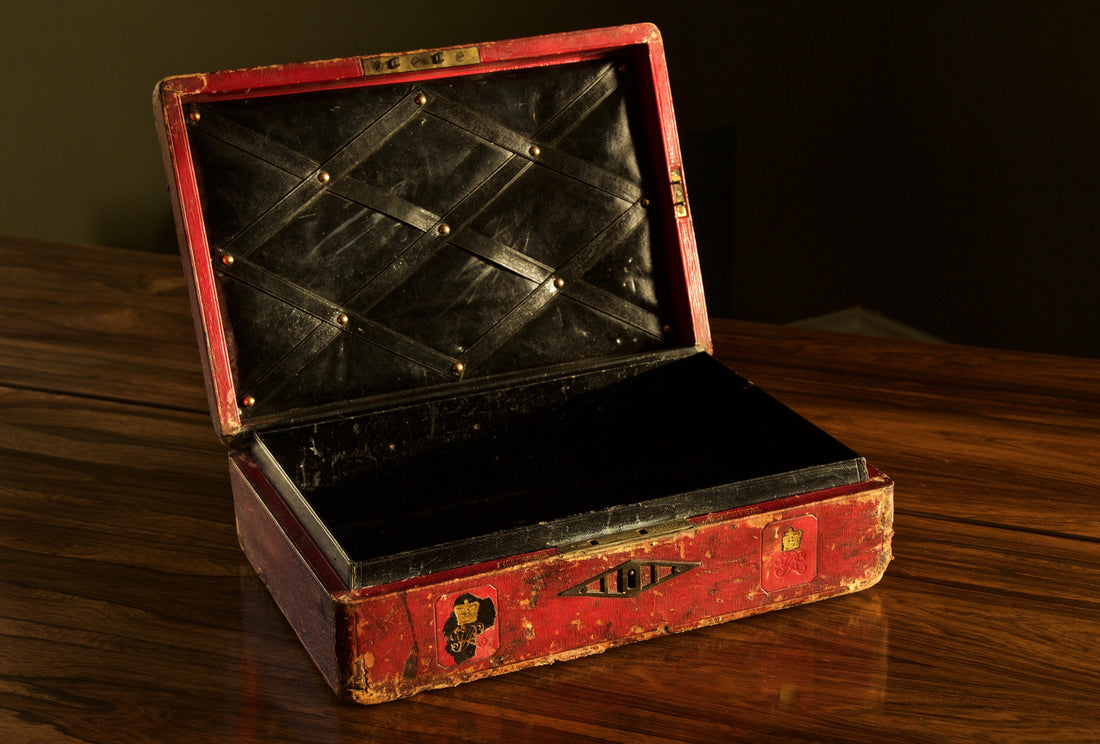In the annals of history, there are moments that define nations and shape the world. Amidst the drama and intensity of these historic events, the humble Wickwar Despatch Boxes stood as silent witnesses, bearing witness to the weightiest decisions of the time. In this blog post, we'll uncover some of the iconic moments where Wickwar Despatch Boxes took center stage, from peace treaties to declarations of war.
The Treaty of Versailles (1919):
After the end of World War I, the world looked to the Treaty of Versailles for a path to peace. Inside a Wickwar Despatch Box, the treaty's terms were transported to the signing ceremony. This marked a pivotal moment in history, as the treaty imposed harsh penalties on Germany and laid the groundwork for the post-war world order.
The Yalta Conference (1945):
Amid the closing days of World War II, the Yalta Conference brought together Allied leaders Franklin D. Roosevelt, Winston Churchill, and Joseph Stalin. The Wickwar Despatch Boxes carried sensitive documents and played a crucial role in discussions that would shape the division of post-war Europe.
The Cuban Missile Crisis (1962):
One of the most perilous moments in the Cold War, the Cuban Missile Crisis brought the world to the brink of nuclear war. Wickwar Despatch Boxes were at hand as President John F. Kennedy and his advisors deliberated their response to the Soviet Union's deployment of nuclear missiles in Cuba. The decisions made during this tense period reverberated globally.
The Falklands War (1982):
When Argentina invaded the Falkland Islands, Wickwar Despatch Boxes were used to transport critical documents relating to the conflict. These boxes played a role in decision-making during the crisis, which ultimately led to the British recapture of the islands.
The Signing of the Good Friday Agreement (1998):
In a more hopeful moment, Wickwar Despatch Boxes were present during the signing of the Good Friday Agreement, which aimed to bring an end to the conflict in Northern Ireland. The boxes symbolized the commitment to peace and reconciliation.
The Intermediate-Range Nuclear Forces Treaty (1987):
During the height of the Cold War, Wickwar Despatch Boxes held the historic treaty signed by President Ronald Reagan and General Secretary Mikhail Gorbachev, marking a significant step toward arms control and de-escalation.
Throughout history, Wickwar Despatch Boxes have played a pivotal role in conveying the gravity of the decisions being made in the most critical moments. From the aftermath of World Wars to the height of Cold War tensions and moments of reconciliation, these boxes have carried the hopes, fears, and ambitions of nations. As we reflect on these iconic moments, we can appreciate the silent yet powerful role these unassuming boxes played in shaping our world.

